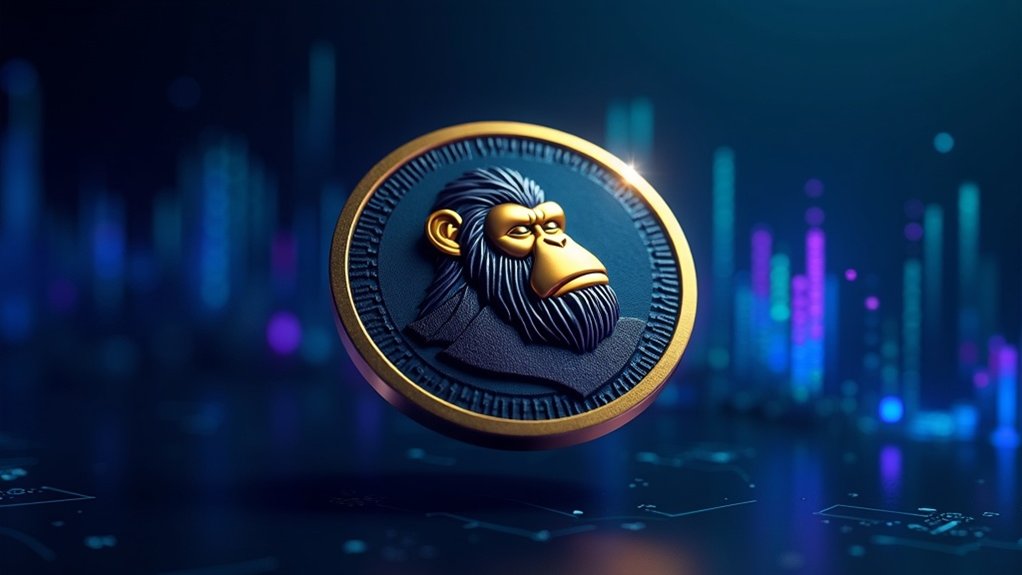Bitcoin began with a mystery. On October 31, 2008, someone called Satoshi Nakamoto published a whitepaper outlining a peer-to-peer electronic cash system. The network launched January 3, 2009, with the mining of the genesis block. First real transaction? Nakamoto sent 10 BTC to Hal Finney. Then came the famous pizza purchase—10,000 BTC for two pizzas in 2010. Nakamoto vanished around 2011, leaving behind a million bitcoins and countless questions.
A revolution started with a pseudonym. On October 31, 2008, someone calling themselves Satoshi Nakamoto published a whitepaper that would change everything. “Bitcoin: A Peer-to-Peer Electronic Cash System” wasn’t just another academic exercise. It was the blueprint for the first viable digital currency—one that actually worked.
Bitcoin didn’t appear out of nowhere. Earlier concepts like b-money by Wei Dai and bit gold by Nick Szabo had been floating around cryptography circles since the late 1990s. They were the almost-theres, the not-quite-rights. The big problem? Double-spending. Nobody had cracked it until Nakamoto proposed a decentralized blockchain solution. No central authority needed. Imagine that. The concept actually traced back to 1983 when David Chaum’s ecash first introduced digital currency to the world.
The revolution didn’t emerge from a vacuum—it evolved from ambitious almost-solutions that couldn’t quite solve cryptocurrency’s core puzzle.
Nakamoto registered bitcoin.org on August 18, 2008. The network officially launched on January 3, 2009, with the mining of the genesis block. Block zero. Patient zero. It contained a Times newspaper headline about bank bailouts. Not subtle, Satoshi. The message was clear: traditional banking had failed.
The first Bitcoin transaction happened just days later on January 12, when Nakamoto sent 10 BTC to programmer Hal Finney. Then came the famous pizza purchase—some guy paid 10,000 BTC for two pizzas in 2010. Those pizzas would be worth millions today. Hope they were tasty.
Satoshi mined about a million bitcoins in those early days. Then, poof. Gone. Around 2010-2011, Nakamoto simply disappeared, handing the reins to developer Gavin Andresen. Nobody knows who Satoshi really was. Man, woman, group? The mystery adds to Bitcoin’s mystique.
The New Liberty Standard established early Bitcoin valuation. Infrastructure grew. Exchanges appeared. In June 2011, WikiLeaks began accepting bitcoins for donations, significantly raising the currency’s public profile. The economic crisis of 2008 had undermined public trust in banks, creating the perfect environment for Bitcoin’s revolutionary approach to finance. The cryptography community that had dreamed of encrypted digital money for years finally had something real.
Bitcoin wasn’t just another tech novelty. It was a response to something broken. A system born from distrust of fractional-reserve banking. Revolutionary? Absolutely. Perfect? No way. But it was the beginning of something nobody could ignore.
Frequently Asked Questions
Who Is Satoshi Nakamoto in Real Life?
Nobody knows.
Satoshi Nakamoto remains one of tech’s biggest mysteries. The pseudonym could be an individual or a group of cryptographers.
Suspects? Many. Dorian Nakamoto got dragged into the spotlight (wrong guy). Craig Wright claimed to be Satoshi (courts said nope). Stephen Mollah tried too (eyeroll).
The real Satoshi vanished around 2011, leaving behind Bitcoin and approximately one million coins worth billions. Smart move, honestly.
How Much Is One Bitcoin Worth Today?
Bitcoin is worth between $116,000 and $119,000 today (August 16-17, 2025).
Pretty impressive for digital code, right? The price closed around $118,838 on August 16, with Changelly reporting $118,494. It’s down slightly from its all-time high of $124,495 just days ago.
Despite the dip, Bitcoin’s still up 74% from last year. Talk about a roller coaster that mostly goes up!
Experts think it might hit $123,763 next month.
Can Bitcoin Transactions Be Traced by Governments?
Yes, governments can trace Bitcoin transactions quite effectively.
Every Bitcoin transaction sits on a public blockchain—permanently. While Bitcoin offers pseudonymity, it’s not anonymity.
Government agencies partner with blockchain analytics firms like Chainalysis to follow the money trail. They force exchanges to hand over user data through subpoenas.
Remember Silk Road? Busted. Bitfinex hackers? Caught.
Privacy coins like Monero offer better protection, but Bitcoin? Pretty much an open book to determined authorities.
Is Mining Bitcoin Still Profitable for Individuals?
Bitcoin mining is tough for individuals in 2025. Profitability? Nearly impossible.
With hash rates at 899 EH/s and expensive hardware costing thousands, solo miners face brutal competition. Average returns of $0.065 per TH/s won’t cut it unless you’ve got dirt-cheap electricity.
Big operations dominate now, using renewable energy and economies of scale. The days of mining from your garage are pretty much dead.
Industrial-scale facilities have all the advantages. Sorry, little guys.
How Does Bitcoin Impact Environmental Sustainability?
Bitcoin’s environmental impact is brutal, no sugarcoating it. The digital currency devours electricity—mostly from fossil fuels—spewing millions of tons of CO2 annually.
It pollutes air with PM2.5 particles, affecting nearly 2 million Americans’ health. Water consumption? Staggering. Bitcoin mining gulped enough water in 2020-2021 to serve 300 million rural Africans.
Only a tiny fraction uses renewable energy. Plus, it generates electronic waste when mining equipment becomes obsolete. Not exactly eco-friendly.









